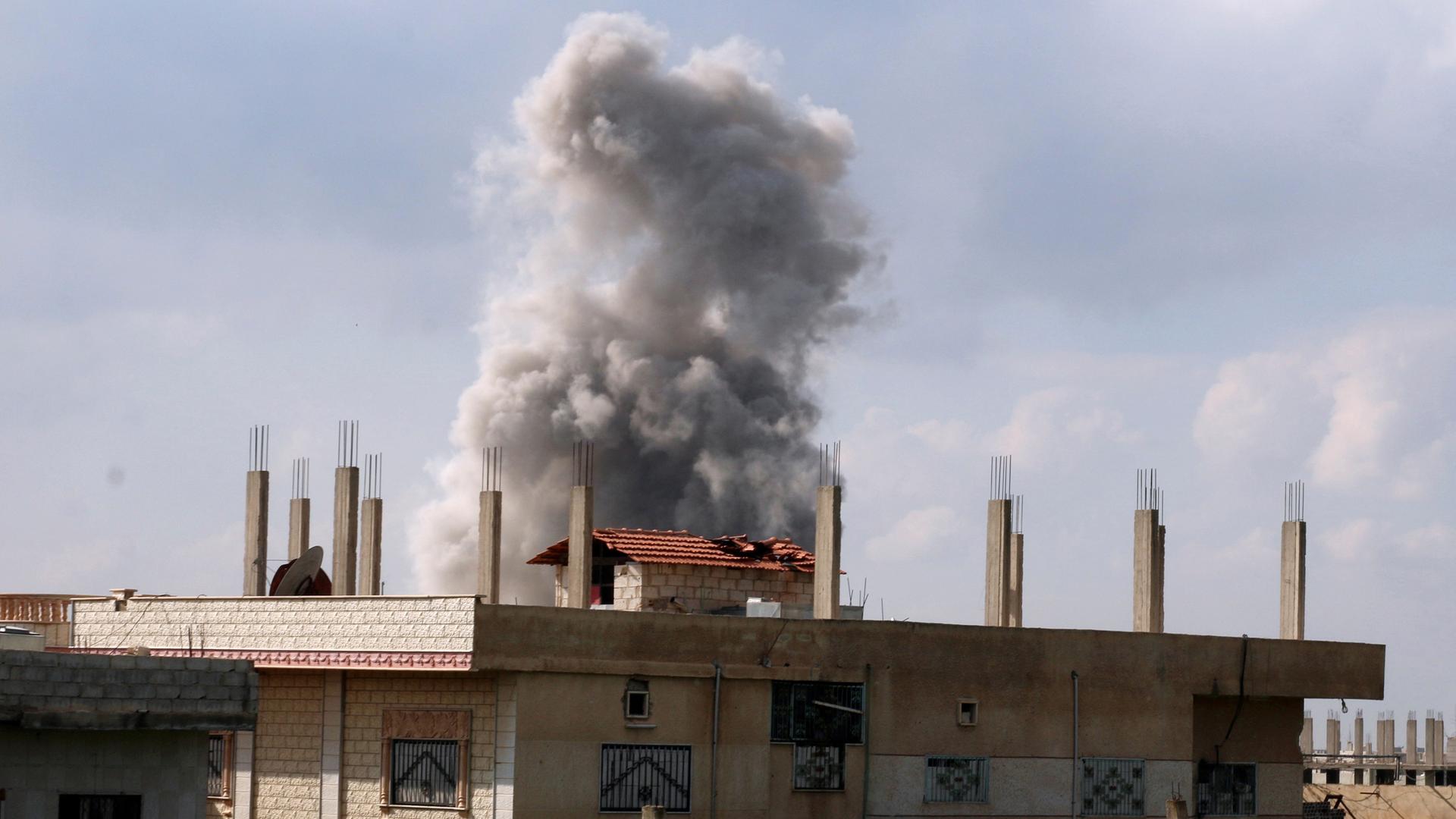Smoke rises after an airstrike on a rebel-held area of Syria, April 7 2017.
“It just wears you down,” says Joshua Landis, talking about the civil war in Syria.
Landis is the director of the Center for Middle East Studies at the University of Oklahoma, and an internationally recognized expert on the conflict. He lived in Syria for years before the war. And he is married to a Syrian.
The civil war in Syria has created colossal human suffering. That's been evident from day one. But it can still be surprising how profoundly this war has changed the lives of Syrians at home and abroad.
“Every Syrian went through real hell,” Landis says, “particularly in that first year or so of the revolution.” It was a time when people had to choose sides. “They really changed their identities,” he explains, “from Syrian nationalism to worrying about their ‘tribe,’ in a sense, or their community.”
Landis says Syrians were trying to figure out what it all meant, “because for many years Syrians have been lying to themselves. They’ve been lying to themselves about their identity, about their religion, about what Syria means, what’s the nature of the regime. And this forced everybody to redefine themselves.”
It’s a process, he says, that has been “extraordinarily painful.”
“The Syrian community here in Oklahoma used to get together, not infrequently, for occasions of birthdays and various parties, annual get-togethers," he says. "And today, it doesn’t do that anymore.”
Landis says that community is now fragmented. “Along religious lines, or whether you support the revolution or don’t support the revolution, and how much. And people have changed sides. … Everybody’s divided.”
“And then of course,” adds Landis, “everybody loses family members. My wife has lost at least seven cousins in this war.”
“Each time that happens, you know, it takes something out of you,” he adds. “You become more and more desperate. You want to get your family out. And that’s what she’s spent her time trying to do, trying to figure out how to get her family out. Because she sees hopelessness in Syria. Things get worse all the time. … There’s no light at the end of the tunnel.”
“A 10-to-12-year-old cousin was talking on the phone the other day,” recounts Landis, “and the first question she asked is, ‘Do you have electricity?’ That’s the overriding thing that people are talking about, do they have electricity.”
“In the wintertime,” he adds, “they didn’t have heating. They were sitting around … a little kerosene thing, with their hands stretched out, trying to warm their hands, as if you were in front of a fireplace. Central heating is turned off for most people. So [if you get] one hour of electricity, everyone’s running to re-charge their phones.”
“Nothing runs smoothly,” says Landis. “Your life is all about little necessities, and making sure you have them. And being anxious that somebody else from your family, who’s out there, is going to get killed. … It just wears you down.”
We’d love to hear your thoughts on The World. Please take our 5-min. survey.
